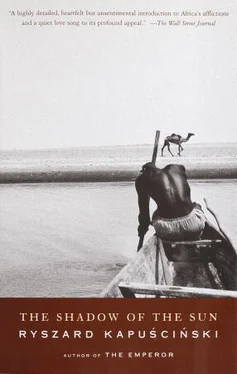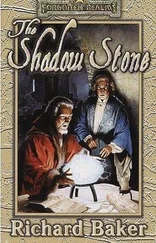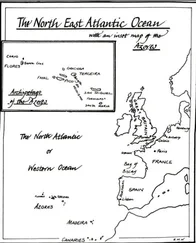The population of Africa was a gigantic, matted, crisscrossing web, spanning the entire continent and in constant motion, endlessly undulating, bunching up in one place and spreading out in another, a rich fabric, a colorful arras.
This compulsory mobility of the population resulted in Africa’s interior having no old cities, at least none comparable in age to those that still exist in Europe, the Middle East, or Asia. Similarly — again in contrast to those other regions — many African societies (some claim all of them) today occupy terrain that they did not previously inhabit.
All are arrivals from elsewhere, all are immigrants. Africa is their common world, but within its boundaries they wandered and shifted about for centuries, a process that continues in certain parts of the continent to this day. Hence the striking physical characteristic of civilization is its temporariness, its provisional character, its material discontinuity. A hut put up only yesterday has already vanished. A field still cultivated three months ago is today lying fallow.
The continuity that lives and breathes here, and that creates the threads of the social fabric, is the continuity of family tradition and ritual, and the pervasive and far-reaching cult of the ancestor. Rather than a material or territorial community, it is a spiritual community that binds the African to those closest to him.
The bus is going deeper and deeper into the thick, tall, tropical forest. Biology in the temperate zones exhibits discipline and order: there is a little stand of pines here, some oaks over there, and birch trees somewhere else. Even in mixed forests a certain clarity and propriety prevail. In the tropics, however, the flora exists in a state of frenzy, in an ecstasy of the most untrammeled procreation. One is struck immediately by a cocky, pushy abundance, an endless eruption of an exuberant, panting mass of vegetation, all the elements of which — tree, bush, liana, vine, growing, pressing, stimulating, inciting one another — have already become so interlocked, knotted, and clenched that only sharpened steel, wielded with a horrendous amount of physical force, can cut through it a passage, path, or tunnel.
Because in the past there was no wheeled transport on this enormous continent; there were also no roads. When the first cars were brought here, early in the twentieth century, they didn’t really have anywhere to go. A paved road is something new in Africa, at most several decades old. And in certain areas it still remains a rarity. Instead of roads, there were trails, usually shared by people and cattle alike. This age-old system of paths explains why people here are still in the habit of walking single file, even if they’re traveling along one of today’s wide roads. It explains, too, why a walking group is silent — it is difficult to conduct a conversation single file.
One can’t afford to be less than a great expert on the geography of these paths. Whoever knows them less than well will lose his way, and if forced to wander too long without water and food will of course perish. Various clans, tribes, and villages have their own paths, which cross one another, and someone unfamiliar with their points of intersection can walk along one assuming it is taking him in the right direction, while in fact it may be leading him astray, even toward death. The most perplexing and dangerous are jungle paths. You are constantly caught on thorns and branches, reaching a destination all scratched and swollen. It is a good idea to carry a stick, for if a snake is lying across the path (as happens often), you must scare it off, and this is best accomplished with a stick. Talismans present further dilemmas. Inhabitants of the tropical forest, living in an impenetrable wilderness, are by nature wary and superstitious. To scare off evil spirits, they hang all kinds of talismans along the pathways. What should you do when you come upon a lizard’s skin left hanging, a bird’s head, a bunch of grass, or a crocodile’s tooth? Should you risk continuing, or, rather, turn back, knowing that beyond this warning sign something truly evil might be lurking?
Every now and then our bus stops along the side of the road. Someone wants to get off. If it’s a young woman with a child or two (a young woman without a child is a rare sight), there unfolds a scene of extraordinary agility and grace. First, the woman will secure the child to her body with a calico scarf (her small charge sleeping the entire time, not reacting). Next, she will squat down and place the bowl from which she is never separated, full of food and goods of all kinds, on her head. Then, straightening up, she will execute that maneuver of a tightrope walker taking his first step above the abyss: carefully, she finds her equilibrium. With her left hand she now clutches a woven sleeping mat, and with her right the hand of a second child. And this way — stepping at once with a very smooth, even gait — they enter a forest path leading to a world I do not know and perhaps will never understand.
My neighbor on the bus. A young man. An accountant from a firm in Kumasi whose name I don’t catch.
“Ghana is independent!” he says ecstatically. “Tomorrow, Africa will be independent!” he assures me. “We are free!”
And he shakes my hand in a way meant to signify that now a black man can offer a white man his hand without self-consciousness.
“Did you see Nkrumah?” he asks, interested. “Yes? Then you are a lucky man! Do you know what we’ll do with the enemies of Africa?”
He laughs, ha-ha, but doesn’t say exactly what will be done.
“Now the most important thing is education. Education, schooling, the acquiring of knowledge. We are so backward, so backward! I think that the whole world will come to our aid. We must be the equals of the developed countries. Not only free — but also equal. But for now, we are breathing freedom. And this is paradise. This is wonderful!”
This enthusiasm of his is universal here. Enthusiasm, and pride that Ghana stands at the head of the independence movement, sets an example, leads all of Africa.
My other neighbor, sitting to my left (the bus has three seats in a row), is different: withdrawn, taciturn, unengaged. He immediately draws attention to himself, for people here are generally open, eager to converse, quick to tell stories and deliver various opinions. Thus far he has told me only that he is working and that he is having some troubles at work. What sorts of troubles, he’s not saying.
Finally, however, as the great forest starts to shrink and grow thinner, signaling that we are slowly approaching Kumasi, he decides to confess something to me. So — he has problems. He is sick. He is not sick always, not continously, but intermittently, periodically. He has already been to see various native specialists, but none of them has been able to help him. The thing is that he has animals in his head, under his skull. It’s not that he sees these animals, that he thinks about them or is afraid of them. No. It’s nothing like that. The animals are literally in his head; they live there, run around, graze, hunt, or just sleep. If they happen to be gentle animals, like antelopes, zebras, or giraffes, he tolerates them well; it is even quite pleasant then. But sometimes a hungry lion arrives. He is hungry, he is furious — so he roars. And then this roar makes his head explode.
The Structure of the Clan
Iarrived in Kumasi with no particular goal. Having one is generally deemed a good thing, the benefit of something to strive toward.This can also blind you, however: you see only your goal, and nothing else, while this something else — wider, deeper — may be considerably more interesting and important.
Kumasi lies amid greenery and flowers, on gentle hillsides. It is like a giant botanical garden in which people were allowed to settle. Everything here seems kindly disposed to man — the climate, the vegetation, other people. The dawns are dazzlingly beautiful, although they last but a few minutes. It is night, and out of this night the sun suddenly emerges. Emerges? This verb suggests a certain slowness, a leisurely process. In reality, the sun comes out as if it were a ball catapulted into the air. We suddenly see a fiery sphere, so near to us that we can’t help experiencing a frisson of fear. Moreover, this sphere is gliding toward us, closer and closer.
Читать дальше












